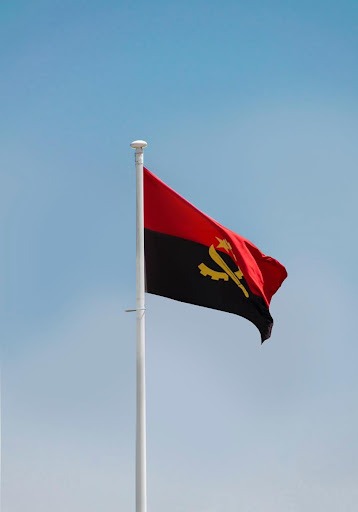
Situated in Sub-Saharan Africa, Angola, the sixth largest economy in the region, stands as a paragon of strategic economic resilience amidst various domestic and international pressures. The leadership of President Joao Lourenço and Finance Minister Vera Daves de Sousa is crafting an economic narrative that could potentially redefine the trajectory of emerging economies in the region.
One of the most transformative aspects of Angola's evolving economic strategy is its shifting orientation towards international relations, particularly concerning China. Over the last decade, China emerged as a significant partner for many African countries, with Chinese loan commitments in the continent peaking at nearly $30 billion in 2016. Yet, this trend took a sharp downturn by 2019, as China's lending to Africa fell to less than $10 billion, driven in part by concerns over repayment capabilities as nearly 60% of China's foreign loans were held by countries in financial distress.
Such a trend is particularly noteworthy when one considers the overall significance of Chinese investment in Africa, a region where Beijing's trade is approximately four times that of the United States. Despite these figures, there's growing cognizance among African countries, including Angola, about the potential pitfalls of heavy dependence on China, with opaque loan terms and debt-trap diplomacy becoming increasingly contentious issues. Therefore, Angola's shift towards engaging more with western investments signals a nuanced approach to economic diplomacy that expands its economic partnerships and fortifies its global standing.
One clear testament to this strategic shift is the construction of the Lobito railway, funded by foreign companies including US companies, and backed recently by both the US and EU. This pivot away from heavy reliance on a single foreign player demonstrates Angola's commitment to cultivating diverse international partnerships, ensuring a more balanced economic growth trajectory.
Parallel to these shifts in international economic relations, Angola is also demonstrating commendable strategic agility in its domestic economic policy. A country blessed with vast oil reserves, Angola has long depended heavily on its oil sector, which contributes about 50% of GDP, over 70% of government revenue, and more than 90% of the country's exports. Yet, the perils of an economy over-reliant on a single sector, especially a volatile one like oil, are becoming increasingly clear.
Understanding this, the Angolan government has shown a renewed commitment to diversifying its economy, with Finance Minister Daves de Sousa leading the charge. By 2024, Angola is expected to start exporting green hydrogen to Germany, marking the nation's entry into the realm of green energy production and exports. This initiative, as suggested by Angola's ambassador to Berlin, Balbina da Silva, capitalizes on Angola's favorable conditions "Angola has all the conditions to export green hydrogen and better conditions than many countries, such as, for example, Namibia, because it has an abundance of water".
This strategic move towards diversification is underpinned by a keen sense of fiscal responsibility. The government has been careful not to accrue additional debt, particularly in a time when families and the wider economy are under pressure. Daves de Sousa's recent pronouncements underline the administration's fiscal prudence, with clear caution against unsustainable debt.
This fiscal responsibility, coupled with efforts towards revenue diversification, represents a clear recognition of the potential vulnerabilities of an economy over-reliant on a single sector. Such a strategy, in alignment with global economic trends, is backed by global institutions such as the World Bank, which has committed to supporting Angola's ambitious reforms through the First Green, Resilient, Inclusive Growth and Diversification Development Policy Loan (DPL) for Angola.
The DPL's three-pronged support strategy further underscores Angola's comprehensive economic vision. By striving to reduce economic distortions, strengthen fiscal resilience, enhance social inclusion, and build climate resilience, Angola is carving out an economic path that is sustainable, resilient, and inclusive.
Simultaneously, the administration's agenda to gradually remove fossil fuel subsidies, while providing assistance to the most vulnerable households, underscores Angola's commitment to innovative economic thinking. This reform is anticipated to save billions, which can be redirected towards enhancing access to health, education, and social protection programs, thereby ensuring more inclusively shared economic prosperity.
By carefully navigating the complex economic waters, both domestically and internationally, Angola demonstrates its clear-eyed view of its economic challenges, a rational approach to fiscal prudence, and a strong commitment to diversification. While most African countries continue to accumulate significant Chinese debt, Angola's strategic pivot to Western partners indicates a more sustainable and balanced approach to international economic relations. With such resilience and foresight, Angola is indeed setting a course for a promising and prosperous future, offering valuable lessons for other emerging economies in the region and beyond.
Disclaimer: IBT Does Not Endorse The Above Content








